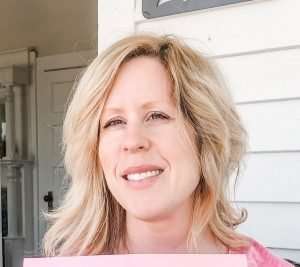There are eight towns across the Upstate that have Main Street associations, which exist to encourage economic development as well as historic preservation of downtowns. Those associations, working in tandem with local Chambers of Commerce and their city officials, have worked hard to support their downtown businesses during the shutdown and as things have begun to open up. We asked them to tell us about some specific ways that their businesses have engaged the community, supported each other, and have been successful in spite of the tremendous hardship of the pandemic.
Here are some of their responses, and we’ll share the others with you next week, in Part 2.

Katherine Brooks, Main Street Central
Katherine Brooks, Central
Central’s Main Street district is a relatively small area, but we have seven small businesses that had been open for less than a year when the shutdown began. A few businesses chose to do exterior improvements during this time, and were able to take advantage of the town’s facade improvement grant. Before restaurants were allowed to reopen, town passed an ordinance allowing sidewalk seating and outdoor alcohol sales, and created extra partitioned off seating areas to allow business to have as much customer seating as possible. Restaurants adapted by promoting take out, online ordering, and delivery, and a women’s boutique has had great success with online sales and curbside pick up.

Libby Imbody, Main Street Walhalla
Libby Imbody, Walhalla
I started my new position in a new Main Street program about two weeks prior to the COVID-19 shutdown. Even before the outbreak, I knew one of my greatest tasks would be to develop and cultivate a stronger sense of community within our downtown businesses. As small as our town is, most shop owners barely knew each other and rarely communicated. The early days of shutdowns and emergency declarations brought a lot of fear and confusion. Navigating both the health and financial issues that seemed to change daily put an unbelievable amount of stress on business owners. I think the true silver lining of this pandemic has been how our business community has united. From cross-promotions to watching each other’s stores to ordering countless take-out dinners from each other, the merchants of Walhalla have amazed me in how quickly they have been able to pull together during the toughest of times. As a business community, we have all improved our resilience, ingenuity, and empathy in the last three months. Entrepreneurs, in general, have a superpower of unlimited hope, and the small business owners of Walhalla are no exception. I truly look forward to what the future of our town holds.

Jonathan Irick, Main Street Laurens
Jonathan Irick, Laurens
When our downtown district was faced with the shutdown, our Main Street SC network became the most active I think it has ever been. We shared a lot of information to our businesses to help them as much as possible. Here in Laurens, we had two businesses in particular who handled the shut-down in successful ways.
Roma, one of our downtown restaurants, unfortunately had to let about 50% of their staff go. However, they took the opportunity to begin offering take-out with curbside pick up and delivery options. They also extended their hours during the day to offer more opportunities to support them. Along with the changes in business model, Yvan Youseff, the owner, and his staff took the down time to repaint the facade of the business, paint the interior and do an overall re-fresh inside and out. Coming out of the shut-down they were able to hire back at least two of the staff and are looking at new additions to their menu.
Similarly, Southern Twist, a boutique in downtown, took to social media to post sales and held a Facebook Live event. They also offered curbside pick-up during the shutdown. Recently, Christie Finley, the owner, reported that she actually saw an increase in her overall sales during the shutdown.
These two success stories demonstrate how our community rallied around our small businesses and helped support them during the COVID-19 shutdown.

Lara Hudson, Uptown Greenwood
Lara Hudson, Greenwood
Uptown Greenwood is very fortunate to have a very rich and diverse music scene. Most any night you can find live music at one of the restaurants or bars in our district. So when the COVID-19 pandemic began and our restaurants and bars were forced to close for indoor dining, not only were those businesses struggling to stay afloat, but our local musicians found themselves with no venues to perform in and no income. Several local business owners and musicians recognized what was happening and quickly created two projects that have been huge successes.
The first was designed to help local restaurants, their staff, and the musicians financially as well as give the community the live music they craved. The “Until Further Notice” campaign consisted of live virtual concerts steaming each night at 7:00 pm on Facebook. The original plan was for 2 weeks but this project is still going strong and you can find live music every Friday and Saturday streaming from our local community theatre on the Howetown Hodges Stay at Home Tour Facebook page. This project allowed for the musicians to post a virtual tip jar and viewers could donate online. A local printer also designed and printed #teamgreenwood t-shirts for the businesses to sell, and 100% of the proceeds benefited the restaurants and their staff.
The second project was a virtual performance of “American Pie” (aka “The Day the Music Died”) involving over 30 local musicians performing the Don McLean classic together, but separately. The video was produced locally by several musicians and videographers who donated their time and efforts. McLean himself gave permission for this video version of his song and generously waived any fees, requesting only a video of the finished product, and he shared the video on his Facebook page. The video can be viewed here. Make sure you look for Greenwood’s own Mayor Brandon Smith.
Uptown Greenwood, like countless communities across the state and nation, continue to face the challenges of doing business in the world-changing pandemic. Greenwood will survive this because of the strong sense of community.
